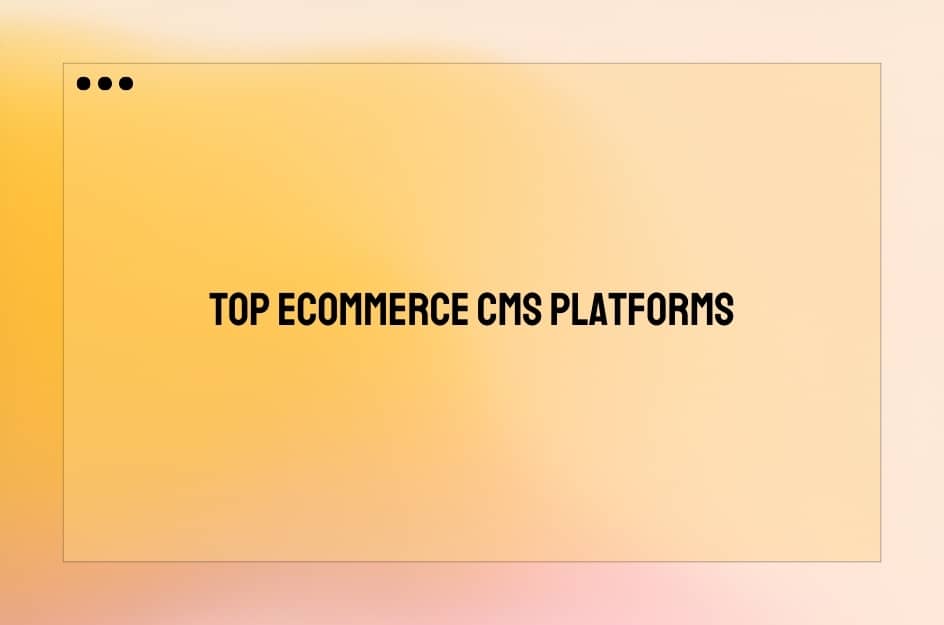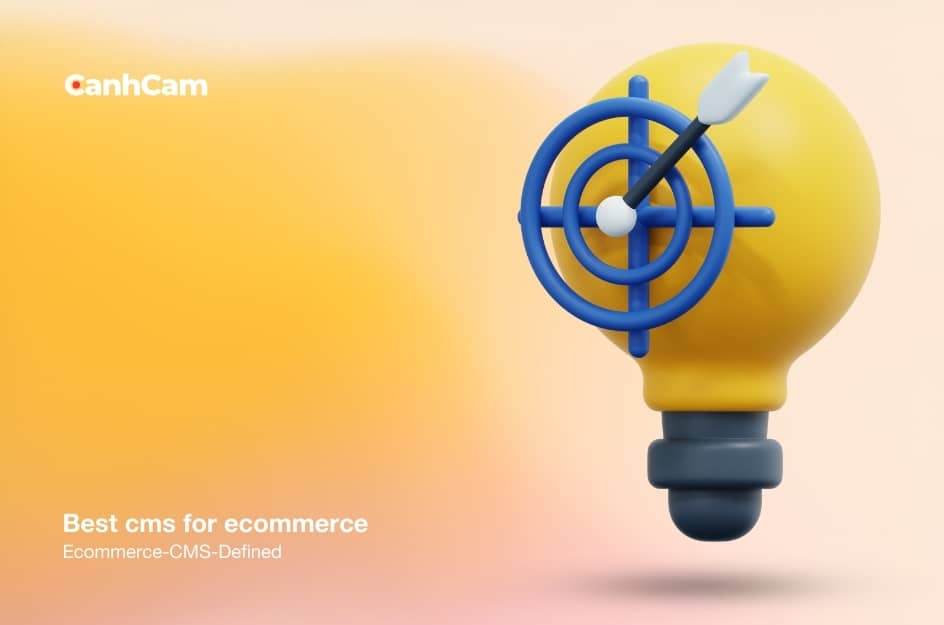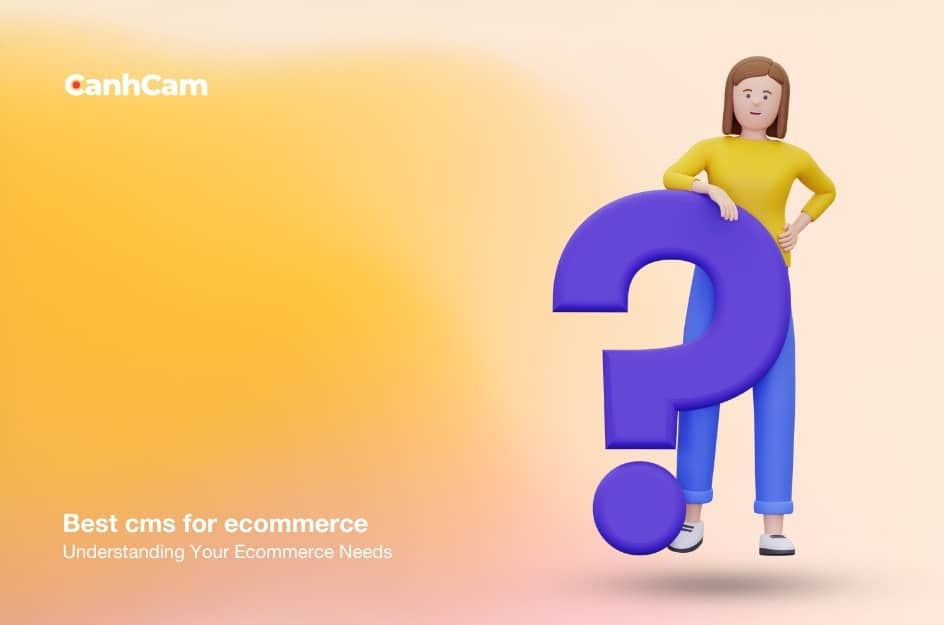Do you have an online store and sell your products and services? If you are an independent, a start-up, a VSE, an SME, or a large group, there are a lot of solutions allowing you to easily create, manage, and monitor your sales on the Internet. And you worry about "I'm not a professional web developer, what can I do?". Don't be confused, we have answers to your question.
To manage your online store there are a lot of software CMSs, which is why we have selected the best ecommerce CMS for your own. Let's start and you will find the one you need!
What is CMS for Ecommerce?
At its core, an ecommerce CMS (Content Management System) is a platform that allows the design, management and animation of a website or a mobile application, without requiring HTML programming. Via this interface, you can easily create and publish content but also manage your product sheets, your orders, your payment methods, etc.
Visit Our Services: Best Web Design Agency Melbourne
This tool allows you to give the appearance you want to show to your visitors while organizing the site's internal processes for you. For example, automated sending of emails in case of cart abandonment, automatic printing of your shipping labels, and many other things.
The Best CMS for Ecommerce Platforms:
As you launch on your quest for the perfect ecommerce CMS, let's shine a spotlight on some of the top contenders dominating the market.
1. Shopify:
Notable Features: Shopify boasts a user-friendly interface, built-in features, and a thriving app marketplace for seamless integrations.
- Pros: Ideal for beginners, Shopify offers extensive customization options and a vast array of third-party apps to enhance functionality.
- Cons: While beginner-friendly, Shopify may present limitations in design flexibility for advanced customization needs.
Pricing: Shopify's pricing starts at $29 per month, with transaction fees applicable based on your chosen plan.
Ideal for: Entrepreneurs seeking a straightforward and scalable ecommerce solution with ample support and resources.
2. WooCommerce (WordPress):
Notable Features: As an open-source platform, WooCommerce offers unparalleled customization through its plugin ecosystem and extensive community support.
- Pros: Highly customizable and cost-effective, WooCommerce provides a solid foundation for businesses with technical expertise seeking full control over their online store.
- Cons: Requires a degree of technical proficiency for setup and maintenance, making it less beginner-friendly compared to hosted solutions.
Pricing: WooCommerce is free to use, although costs may arise from hosting and premium plugin purchases for enhanced functionality.
Ideal for: Technically savvy users and businesses requiring extensive customization capabilities within the familiar WordPress environment.
Read more: B2C Ecommerce Development: Benefits & Types of B2C
3. BigCommerce:
Notable Features: BigCommerce stands out with its scalability, built-in marketing tools, and enterprise-grade features designed to fuel growth.
- Pros: Scalable for businesses of all sizes, BigCommerce offers robust marketing functionalities and comprehensive support for expanding product catalogues.
- Cons: While feature-rich, BigCommerce's pricing may be higher compared to some alternatives, and its learning curve may pose challenges for beginners.
Pricing: BigCommerce's pricing starts at $80 per month, scaling with your store's size and requirements.
Ideal for: Established businesses seeking a feature-rich ecommerce platform with a focus on marketing automation and growth.
4. Drupal:
Notable Features: Drupal is renowned for its security, flexibility, and extensive development community, making it ideal for complex customization.
- Pros: Open-source and highly secure, Drupal offers unparalleled flexibility and control over every aspect of your ecommerce website.
- Cons: Requires significant developer expertise and has a steeper learning curve compared to more user-friendly platforms.
Pricing: Drupal is free to use as an open-source platform, although costs may arise from development and hosting requirements.
Ideal for: Developers and large businesses requiring a secure and highly customizable ecommerce solution tailored to their unique specifications.
5. Magento:
Notable Features: Magento offers a powerful and feature-rich platform with high customization potential. It boasts robust marketing, SEO, and catalogue management tools.
- Pros: Magento is ideal for established businesses with complex product catalogues and specific customization needs. It is known for its scalability and ability to handle high-volume stores.
- Cons: Magento can be more challenging to set up and manage than other options. It often requires technical expertise or developer assistance.
Pricing: Magento offers a free Open-Source Community Edition and paid Commerce versions with varying pricing structures.
Ideal for: Businesses with a large product catalogue, high-order volume, and in-house development resources.

6. Wix Ecommerce:
Notable Features: Wix Ecommerce offers a user-friendly drag-and-drop interface for building your online store. It integrates seamlessly with the Wix website builder, creating a cohesive brand experience.
- Pros: Wix Ecommerce is ideal for beginners and small businesses seeking a user-friendly platform with a focus on design. It offers built-in features and app integrations to manage your store.
- Cons: Wix Ecommerce may have limitations on customization compared to more robust platforms like Magento. Scalability for very large stores might be a concern.
Pricing: Wix Ecommerce plans start at $23 per month and include various features and storage capacities.
Ideal for: Businesses prioritizing ease of use, design flexibility, and seamless integration with their existing Wix website.
7. Square Online Store:
Notable Features: Square Online Store integrates seamlessly with Square's point-of-sale system, allowing for omnichannel inventory and sales management. It offers a user-friendly interface with built-in marketing tools.
- Pros: Square Online Store is ideal for businesses already using Square for in-person payments. It offers ease of use, integration with existing systems, and marketing tools to reach customers.
- Cons: Square Online Store may have limitations on customization and features compared to more established e-commerce platforms.
Pricing: Square Online Store offers a free plan with basic features and paid plans starting at $26 per month with additional functionalities.
Ideal for: Businesses already using Square for in-person sales seeking a simple and integrated online store solution.
8. Prequel:
Notable Features: Prequel focuses on headless commerce, offering a flexible API for integrating its ecommerce functionalities into your existing website or mobile app. It also provides a user-friendly interface for managing products and orders.
- Pros: Ideal for businesses seeking a headless commerce solution for a customized storefront experience. Prequel offers scalability and ease of integration.
- Cons: Prequel's headless approach requires some development knowledge or a developer to set up the integration with your storefront.
Pricing: Prequel offers a free plan with limited transactions and paid plans with varying pricing based on transaction volume.
Ideal for: Businesses with development resources or a preference for headless commerce for a custom storefront experience.
9. Salesforce Commerce Cloud (Demandware):
Notable Features: Salesforce Commerce Cloud offers a robust and scalable platform for enterprise-level businesses. It integrates seamlessly with other Salesforce products and boasts advanced marketing, personalization, and order management functionalities.
- Pros: Ideal for large businesses with complex needs and a high order volume. Salesforce Commerce Cloud offers powerful features, scalability, and integrations with other products.
- Cons: Salesforce Commerce Cloud can be expensive and requires significant technical expertise or a dedicated development team to manage and maintain.
Pricing: Salesforce Commerce Cloud requires contacting sales for custom pricing based on your specific needs.
Ideal for: Large businesses with a high order volume, complex sales requirements, and existing investment in Salesforce products.
10. OpenCart:
Notable Features: OpenCart is a free and open-source e-commerce platform that offers a good degree of customization and scalability. It boasts a large community and numerous extensions for additional functionalities.
- Pros: Ideal for budget-conscious businesses with some technical knowledge or access to a developer. OpenCart offers a high degree of customization and a large community for support.
- Cons: OpenCart requires more technical knowledge to set up and manage than user-friendly options like Wix Ecommerce. Security updates and maintenance might be a concern for non-technical users.
Pricing: OpenCart itself is free to download and use. However, extensions, themes, and hosting will incur additional costs.
Ideal for: Businesses on a budget with some technical knowledge or access to a developer seeking a customizable ecommerce solution.
Additional Options:
While the aforementioned platforms stand out as leaders in the ecommerce CMS landscape, it's worth exploring other popular options to find the perfect fit for your business. Briefly, let's touch upon platforms like Squarespace, Wix, OpenCart, PrestaShop, and HubSpot, highlighting their strengths and target audiences.

Understanding Your Ecommerce Needs:
Considerations such as target audience, scalability requirements, technical proficiency, and preferred business model play pivotal roles in this decision-making process. Let's delve deeper into these factors to lead your path to understanding the best CMS for an ecommerce platform:
Target Audience and Niche:
Understanding your target audience and niche is foundational to selecting the right ecommerce platform. Whether catering to niche markets or targeting broader demographics, your chosen platform should seamlessly align with your audience's preferences and shopping habits.
Scalability Considerations:
Anticipating future growth is imperative when choosing an ecommerce CMS. Your selected platform should possess the scalability to accommodate expanding product catalogues, increased traffic volumes, and evolving business needs. Flexibility and adaptability are key.
Technical Skills:
Assess your technical prowess honestly. While some platforms offer intuitive interfaces tailored for beginners, others require a more hands-on approach. Choose a platform that matches your comfort level with technology, ensuring a smooth transition into the world of ecommerce.
Business Model Exploration:
Explore various ecommerce business models, such as dropshipping, subscriptions, or traditional retail. Each model necessitates distinct features and functionalities from your chosen CMS. By aligning your platform with your business model, you set the stage for success in the competitive ecommerce landscape.

Ecommerce CMS Features:
Dive into essential features for Ecommerce CMS platforms to optimize your online store's functionality and sales:
Ease of Use:
Look for platforms offering user-friendly interfaces that streamline product management, order processing, and content creation. A hassle-free CMS empowers you to focus on growing your business rather than grappling with technical intricacies.
SEO Capabilities:
Unlocking the power of search engine optimization (SEO) is paramount for ecommerce success. Seek platforms equipped with robust SEO features, enabling your online store to rank higher in search engine results and attract organic traffic. After all, visibility is the first step towards profitability.
Design Flexibility:
Your online store is a reflection of your brand identity. Opt for CMS platforms that offer ample design flexibility, allowing you to customize your store's aesthetics to resonate with your target audience. From colour schemes to typography, every detail matters in crafting a captivating user experience.
Integration Support:
Seamless integration with essential tools and services is essential for operational efficiency. Whether it's payment processors, shipping solutions, or marketing automation tools, choose a CMS that offers comprehensive integration support. This ensures a cohesive ecosystem that enhances productivity and enhances customer satisfaction.
Customer Support:
In times of need, reliable customer support can be a lifeline for ecommerce entrepreneurs. Prioritize platforms that offer responsive and knowledgeable support channels. Whether it's live chat, email support, or comprehensive documentation, accessible assistance ensures smooth sailing on your ecommerce journey.
Hosting Considerations:
Delve into the nuances of hosting options offered by various CMS platforms. While some offer self-hosted solutions providing greater control and flexibility, others provide fully managed hosting for hassle-free operation. Consider your bandwidth, storage requirements, and technical preferences when making this critical decision.
Conclusion
In the dynamic realm of ecommerce, selecting the best CMS for your online store is a pivotal decision that warrants careful consideration. By understanding your unique business needs, evaluating key features of ecommerce CMS platforms, and following a structured decision-making framework, you can confidently navigate the landscape and embark on a path towards sustained growth and prosperity.
Remember, the journey towards ecommerce success is multifaceted, encompassing technical proficiency, strategic marketing initiatives, exemplary customer service, and legal compliance. By embracing these foundational principles and leveraging valuable resources, you pave the way for a thriving online business in the market and beyond.
Frequently Asked & Questions
1. Is WordPress still the best CMS?
WordPress is the most used CMS around the globe being the power source of the majority of websites although Drupal and Joomla are alternative CMSs that are also great for smaller and medium-sized businesses.
2. Do you need a CMS for Ecommerce?
In today’s competitive online shopping sector, having an engaging and functional online store is key to meeting business objectives. However, merely having a website is insufficient. Effective handling of content, products and orders mandates a CMS tool for ecommerce.
3. What is the Distinction between a CMS and an ecommerce website?
CMS develops and maintains content, serving multiple purposes for website creation. E-commerce platforms are specifically designed for companies selling products or services online with the stress on the transactional capabilities of these types of platforms.

